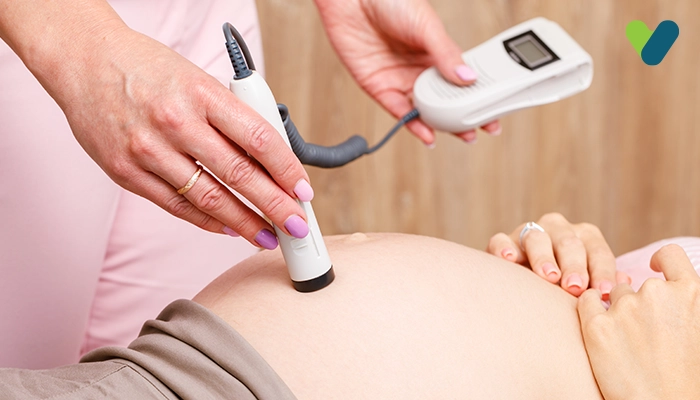Pregnancies are different for all women. No two women will ever experience the same type of pregnancy. But there’s one thing that every woman equally hates during this period, and it’s getting tests done.
And so did Swara. When her doctor suggested getting CVS Sampling done, she was frustrated. However, before going in for the procedure, she decided to learn all there was to know about CVS Sampling and then go through it. And here’s what she found out.
What Is CVS Sampling
Chorionic Villus Sampling (CVS) is a prenatal test in which the doctor removes chorions from your baby's placenta for testing. The sample can be taken either through Rosie Weill, through cervical erosion and suction methods, or abdominal surgery with removal of tissue obtained directly by cutting open maternal abdomen.The placenta is one of the vital parts of any pregnant woman, providing oxygen and nutrients for her growing baby and removing waste products from its blood. The chorionic villi are projections from this tissue that have some genetic similarity with both mother and child due to how closely they're linked during a pregnancy. The test can be done 10 weeks into it all!
Chorionic villus sampling can reveal if a baby has a chromosomal condition, such as Down syndrome. It also provides valuable information about your future child's health and genetics that you might not have known before!
Purpose of the CVS Sampling Test
CVS Sampling's primary goal is to check if your fetus has a specific genetic problem, such as Down syndrome or cystic fibrosis.You doctor might suggest this test if
- You have family members who suffer from one of these conditions themselves
- If they believe it exists in their genes
- An earlier blood screening came back suspicious.
However, doctors cannot use CVS for all possible problems, so returning normal numbers does not mean a pregnant woman is free & clear.
Purpose of CVS Sampling
Chorionic villus sampling is a prenatal test that can provide information on the genetic makeup of your baby. It's typically offered when you might have questions or concerns about managing pregnancy, and it needs to happen earlier than other tests!When should you expect your first appointment? Most women get scheduled at some point between weeks 11-14 during this stage in pregnancy. However, appointments may vary based on eligibility factors like maternal health history (this will help the doctor determine what conditions are most relevant).
Consider Getting Chorionic Villus Sampling Done If:
- You had chromosomal condition in a previous pregnancy: If your previous pregnancy was affected by Down syndrome or any other chromosomal condition, this pregnancy may be at a slightly higher risk, too.
- Positive results from any prenatal screening test: If the results of a screening test — such as prenatal cell-free DNA screening or the first-trimester screen — are positive, you might have to opt for a chorionic villus sampling to confirm or rule out a diagnosis.
- You or your partner is a carrier of any genetic condition: In addition to identifying Down syndrome, CVS can be used to diagnose many other genetic conditions — including single gene disorders such as Tay-Sachs and cystic fibrosis.
- You're pregnant at 35 or older: Babies born to women 35 or older have higher risk of chromosomal conditions, such as Down syndrome.


